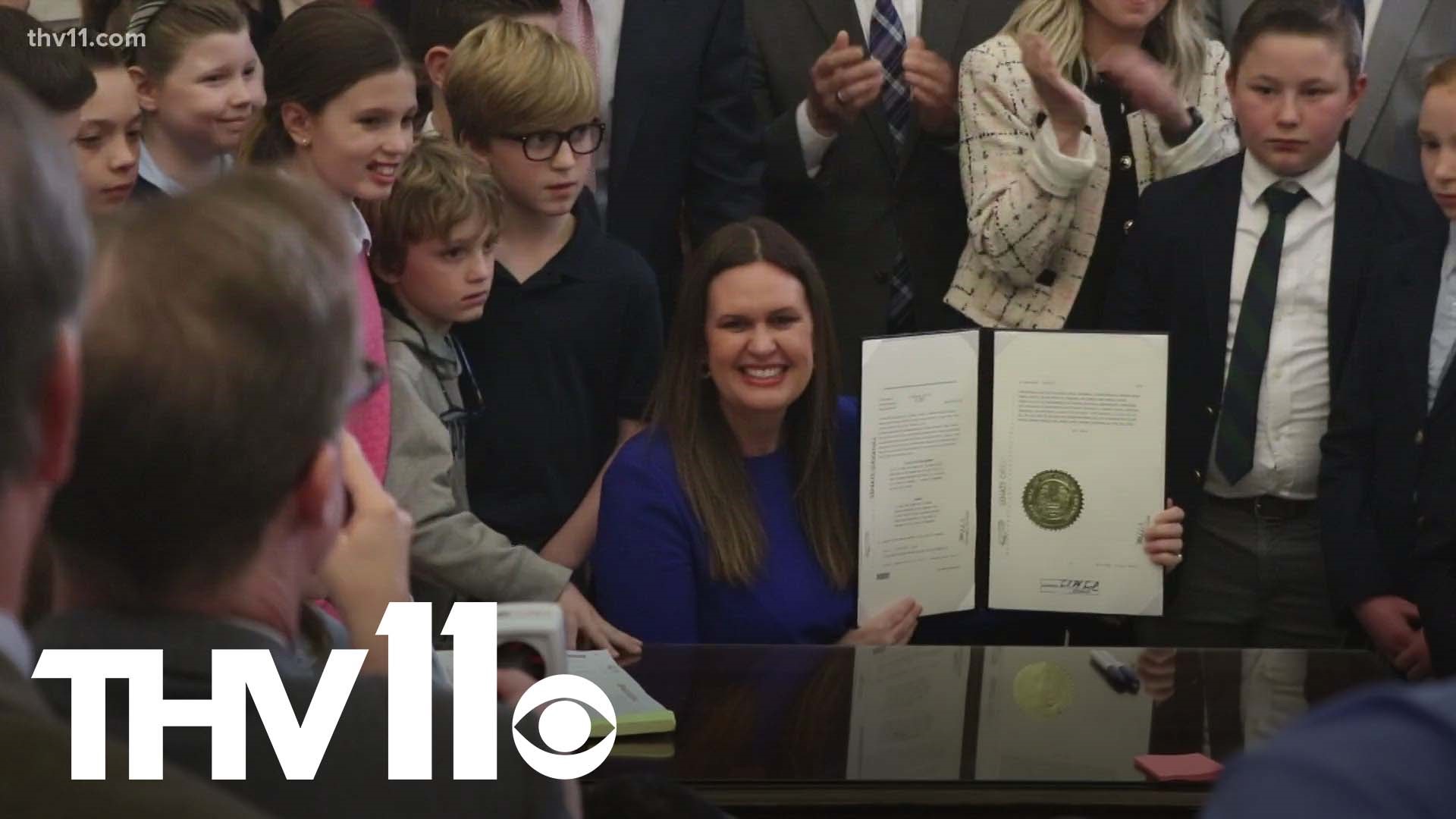LITTLE ROCK, Ark. — The Arkansas LEARNS Act has been blocked for a second time two weeks after the state's Supreme Court sent it back to circuit court.
Pulaski County Circuit Judge Herbert Wright made the ruling Friday afternoon saying that legislators didn't hold a separate emergency clause vote when they passed the bill.
The law is a cornerstone in Gov. Sarah Huckabee Sanders' first year as governor.
The ruling pushes back the LEARNS Act from becoming law until the first of August.
A hearing was held on June 20 where Wright listened to evidence and testimony from plaintiffs and defendants.
"The issue before the Court is whether the emergency clause of Act 237 is effective," Wright said in his opinion. "The Court is not tasked with determining whether Act 237 will become law but only determining whether the Act’s Emergency Clause was constitutionally enacted."
In his ruling Wright cited the Arkansas Constitution that requires a "separate roll call" vote to enact an emergency clause, which would immediately put the law into effect once signed by the governor.
Without an emergency clause, most of the signed legislation goes into effect 90 days after the General Assembly has called an end to the session.
Those suing have argued that a separate vote was not held for the emergency clause while the state has maintained that "voting on a bill and an emergency clause is usually combined" unless a legislators makes a motion for a separate vote.
"The Court finds that the Emergency Clause of the LEARNS Act was not enacted pursuant to the requirements of that Constitution," Wright said. "Since that provision of the law is not effective, all provisions of the Act purported to be immediately effective due to the invalid clause are now effective as of the default date the Act would be effective – August 1, 2023."
Judge Wright did not rule on specific parts of the law because that "would be a political question" or the validity of the emergency clause as described in the legislation.
He also rejected the state's defense that it has sovereign immunity, saying it can't "resort to a claim of sovereign immunity where the state is acting illegally."
"Sovereign immunity does not entitle that state to ignore that Constitution," Wright said.
Attorney General Tim Griffin will appeal the ruling.
We will update this article with more information as it becomes available.

